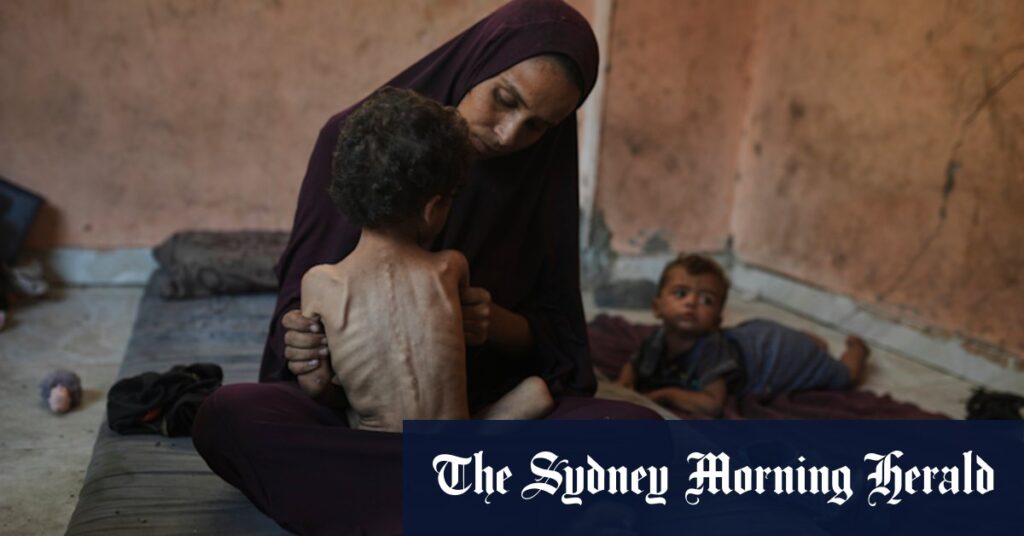
The humanitarian crisis in Gaza has reached a critical point, with the United Nations warning of a “population death spiral” due to severe malnutrition. According to the UN’s World Food Program, nearly 100,000 women and children are in urgent need of treatment for malnutrition, as medical facilities run out of essential treatments and medicines.
Israel, which has allowed only limited supplies into Gaza over the past two months, attributes the disruption in food distribution to Hamas. However, the UN argues that the blockade imposed by Israel since the conflict began must be lifted to allow aid to flow freely.
Overwhelmed Hospitals and Desperate Families
At the Patient’s Friends Hospital, the situation is dire. The facility is overwhelmed with 200 to 300 malnourished children arriving daily. Medical staff are using quick assessments, such as measuring the circumference of children’s upper arms, to determine the severity of malnutrition. The hospital’s 10-bed ward is now accommodating up to 19 children at a time, including older children due to the worsening crisis.
Medical workers themselves are suffering. Two nurses have resorted to intravenous drips to sustain their energy. “We are exhausted. We are dead in the shape of the living,” one staff member lamented.
“If we don’t have potassium supplies, we will see more deaths,” said a hospital worker, highlighting the critical shortage of medical supplies.
Personal Stories of Suffering
In the Shati Refugee Camp, the plight of two-year-old Yazan Abu Ful epitomizes the crisis. His mother, Naima, revealed his emaciated body, with bones protruding starkly. Despite multiple hospital visits, the family is told simply to feed him. “I tell the doctors, ‘You see for yourself, there is no food,'” his father, Mahmoud, expressed in frustration.
The family survives on minimal rations, such as eggplant boiled in water, which they stretch over several days. Yazan’s condition is mirrored in his siblings, who also appear thin and drained.
Wider Implications and International Response
The crisis in Gaza is not limited to children. Adults, particularly those with pre-existing health conditions, are also succumbing to starvation. On Thursday, the bodies of an adult man and woman, both showing signs of severe malnutrition, were brought to Gaza City’s Shifa Hospital. “These diseases don’t kill if they have food and medicine,” noted hospital director Mohammed Abu Selmia.
Israel’s blockade, which initially cut off food, medicine, and other supplies for 2½ months, was intended to pressure Hamas. Although the blockade has slightly eased, the current level of aid is insufficient. The UN reports that only 69 trucks of aid enter daily, far below the 500 to 600 needed.
“Australia has joined 27 other nations in condemning Israel’s ‘drip-feeding of aid and the inhumane killing of civilians, including children,'” highlighting the international outcry.
Looking Ahead
The ongoing blockade and insufficient aid have created a volatile situation in Gaza, with the potential for further deterioration. The UN and other international bodies continue to call for an immediate lifting of restrictions to prevent a full-scale famine.
As the crisis unfolds, the world watches with bated breath, hoping for a resolution that will alleviate the suffering of Gaza’s most vulnerable. The urgent need for humanitarian intervention is clear, and the consequences of inaction could be catastrophic.





